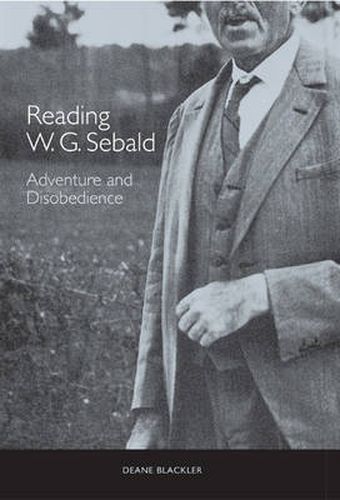Readings Newsletter
Become a Readings Member to make your shopping experience even easier.
Sign in or sign up for free!
You’re not far away from qualifying for FREE standard shipping within Australia
You’ve qualified for FREE standard shipping within Australia
The cart is loading…






W. G. Sebald was born in 1944 in Germany. He found his way as a young academic to England and a career as professor of German. Only between the late 1980s and his untimely death in 2001 did he concentrate on nonacademic writing, crafting a new kind of prose work that shares features with but remains distinct from the novel, essay, travel writing, and memoir forms and gaining elevation to the first rank of writers internationally. No less a critic than Susan Sontag was moved to ask Is literary greatness still possible?, implying that it was and that she had found it embodied in his writing. Deane Blackler explores Sebald’s biography before analyzing the reading practice his textscall forth: that of a disobedient reader, a proactive reader challenged to question the text by Sebald’s peculiar use of poetic language, the pseudoautobiographical voice of his narrators, the seemingly documentary photographs he inserted into his books, and by his exquisite representations of place. Blackler reads Sebald’s fiction as adventurous and disobedient in its formulation, an imaginative revitalization of literary fiction for the third millennium.
Deane Blackler received her Ph.D. in Comparative Literature in 2005 from the University of Tasmania.
$9.00 standard shipping within Australia
FREE standard shipping within Australia for orders over $100.00
Express & International shipping calculated at checkout
W. G. Sebald was born in 1944 in Germany. He found his way as a young academic to England and a career as professor of German. Only between the late 1980s and his untimely death in 2001 did he concentrate on nonacademic writing, crafting a new kind of prose work that shares features with but remains distinct from the novel, essay, travel writing, and memoir forms and gaining elevation to the first rank of writers internationally. No less a critic than Susan Sontag was moved to ask Is literary greatness still possible?, implying that it was and that she had found it embodied in his writing. Deane Blackler explores Sebald’s biography before analyzing the reading practice his textscall forth: that of a disobedient reader, a proactive reader challenged to question the text by Sebald’s peculiar use of poetic language, the pseudoautobiographical voice of his narrators, the seemingly documentary photographs he inserted into his books, and by his exquisite representations of place. Blackler reads Sebald’s fiction as adventurous and disobedient in its formulation, an imaginative revitalization of literary fiction for the third millennium.
Deane Blackler received her Ph.D. in Comparative Literature in 2005 from the University of Tasmania.